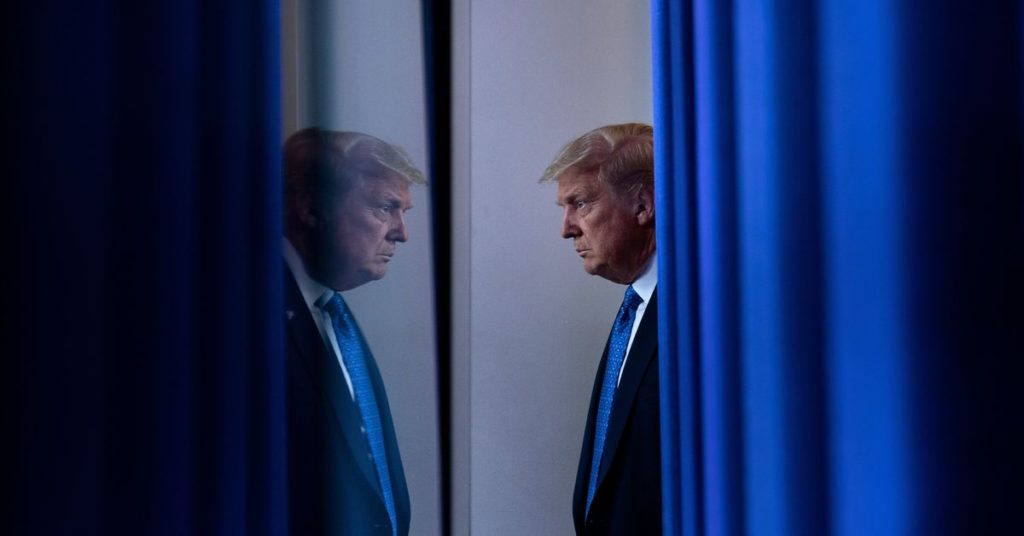
On Aug. 8, President Donald Trump unilaterally deferred payroll taxes for millions of workers with the stroke of a pen. He also extended relief for student loan borrowers, bolstered unemployment benefits, and vaguely directed the Department of Housing and Urban Development to help out struggling renters. How these actions are legal is beyond most constitutional scholars, and the president’s lawyers will likely twist themselves in knots to justify these orders.
But, one thing is for sure. President Trump wouldn’t even have been able to claim the authority to undertake these actions were it not for vague legislation that gives the executive far too much power. And unless the genie is put back in the bottle, future presidents will take Trump’s usurpations to new levels. It’s time for Congress to take back the power of the purse and deliver real relief for struggling Americans.
Since the start of his administration, President Trump has come to realize that executive actions are far easier to implement than hassling and “negotiating” with an unruly Congress. With a simple signature, the president claims the authority to divert vaguely appropriated Congressional funding to ends that are creative to say the least. For example, President Trump’s executive action establishing a $300 weekly federal unemployment benefit isn’t money that materialized out of thin air. Rather, the president is directing Disaster Relief Funds already appropriated by Congress to help out-of-work Americans. Lawmakers approved that money for the Department of Homeland Security (DHS) to help manage response and recovery efforts in the event of a catastrophe.
DHS agency the Federal Emergency Management Agency (FEMA) typically administers these funds to remedy problems caused by disasters and uses these taxpayer dollars to fund infrastructure repairs, hazard mitigation, and immediate assistance to survivors. FEMA doesn’t usually dabble in broader based economic relief such as unemployment benefits and typically only provides unemployment assistance for individuals not eligible for regular unemployment insurance. Unemployment benefits are usually a state matter, with Congress occasionally stepping in to help states pay out benefits to unemployed Americans. But, when Congress gives the executive branch broad authority and vague guidance on how to use dollars appropriated to agencies, it creates an open invitation for presidents to flex their powers. And that’s exactly what Trump is doing by using disaster relief money in a highly unusual way that Congress never intended.
This is hardly the first time that President Trump has used broad Congressional language to circumvent lawmakers. In 2018, Trump invoked an obscure “national security” provision in the Trade Expansion Act of 1962 to slap 25 percent and 10 percent tariffs on steel and aluminum imports respectively from around the world. A product of the Cold War era, the legislation allows presidents to impose trade taxes if “an article is being imported into the United States in such quantities or under such circumstances as to threaten or impair the national security.” The problem is that anything could conceivably be construed as impacting national security, in effect giving presidents unbridled taxation powers over imports. President Trump dropped these onerous tariffs on Canada, only to recently reimpose the 10 percent tax on aluminum effective Aug. 16. Making the case that worldwide tariffs are necessary for national security is shaky enough but singling out Canada is truly absurd.
Lawmakers were certainly quick to criticize President Trump’s predecessors for leaning too heavily on executive authority. Congress rightly howled when President Barack Obama unilaterally ordered the Department of Health and Human Services to delay parts of Obamacare. Ditto when Presidents George Bush and Obama relied on executive powers to warrantlessly wiretap law-abiding Americans. It’s up to lawmakers to end this bipartisan madness, and wind down the president’s authority.
Congress should conduct a thorough review of antiquated laws (e.g. the Trade Expansion Act of 1962) and ensure that provisions don’t inadvertently give the chief executive unchecked power. The stroke of the pen has its use, but only for narrow, reserved purposes. A president is not a king.
This story was originally published by The Center Square.











More Stories
Kemp signs executive order to extend suspension of Georgia’s motor fuel tax until July 14
Florida continues to outperform U.S. in economic success
Newsom announces funding expansion for reproductive services